CAC registration is an official process that helps business owners legally establish their firms with the Corporate Affairs Commission (CAC) in Nigeria. There are many benefits that come with registering your business. For one, your company gets legal standing, and you gain credibility with clients, banks, and partners. This allows you to conduct your business efficiently and without stress.
Every business operating in Nigeria is expected to register with the CAC to gain access to contracts and funding. Armed with the right information, you can enjoy all of these benefits.
FBA Nabena & Co. is a full-service law firm with 26 years of experience helping entrepreneurs and business corporations complete their registrations accurately. We have created this guide to outline each step required for CAC registration clearly, so you can register your business with confidence.
What is CAC Registration in Nigeria?
CAC registration in Nigeria is the process of formally registering your business with the Corporate Affairs Commission, the government body that regulates the formation and management of companies in Nigeria. This gives your business credibility and legal standing.
Registering your business with the CAC is a mandatory process listed under the Companies and Allied Matters Act (CAMA) of 1990.
Who Needs CAC Registration?
Virtually anyone who runs a business in Nigeria requires CAC registration, including sole proprietors, partnerships, NGOs, and companies.
Going on to operate a business without registering with the CAC is illegal and can result in fines from the government and business closure. According to an article published on The Punch NG, business owners may even face jail terms for failing to register with the CAC.
One thing to note is that CAC registration is not limited to large or established companies only. Even small businesses (let’s say a neighbourhood bakery, a small clothing boutique, or a Point of Sale (PoS) operator) can benefit from registering with the CAC too.
Types Of Business That Need CAC Registration
Wondering if your business needs to register with the CAC? Here is a brief list of the types of businesses legally required to register:
- Sole Proprietors: Individuals who run their business under a certain trade name. Registering your business allows you to open a commercial bank account and prevents others from stealing your name.
- Partnerships: Two or more people who jointly own and manage a business. CAC registration helps you and your business partner define your rights and profit-sharing terms under Nigerian law.
- Companies: Entrepreneurs who want to form private limited (LTD) or public limited (PLC) companies must register with the CAC.
- Non-Profits: These include non-governmental organisations like NGOs, charities, and religious bodies.
- PoS Terminal Operators: Individuals or companies using Point of Sale (PoS) terminals, also known as mobile money agents, are now required to register with the CAC as per an article in the Vanguard.
- Foreign Investors: Non-Nigerians establishing businesses in Nigeria are also required to register with the CAC, following specific guidelines.
CAC Registration Requirements and Documents

A lot of times, business owners are discouraged from registering with the Corporate Affairs Commission due to the perceived number of documents the process requires. The actual case is different. CAC registration requirements are easy to acquire once you have a proper list based on your type of business.
Below, we go over the requirements for CAC registration in more detail.
For Business Name Registration
Business name registration is a lighter, cheaper model designed for sole proprietorships and small businesses. With this, you only register the person behind the business, not a separate legal entity.
To register your business name legally in Nigeria, you will need the following documents:
- Personal Identification Number: A valid means of identification for the proprietor (e.g, National ID Number (NIN), international passport, driver’s license, or voter’s card).
- Passport Photograph: A recent passport photograph of the business owner. You will need this in digital format for online registration via the CAC registration portal.
- Business details: Your proposed business name (and at least one alternative name), a brief description of the nature of the business, and the business address (principal place of business).
- Owner’s Information: The proprietor’s personal details (full name, date of birth, phone number, email, and residential address).
For Company (Limited Liability) Registration
Company (Limited Liability) registration is a more formal and detailed process that not only registers your business name but also creates a separate legal entity with shareholders, directors, and constitutional documents.
Here are the CAC registration requirements you will need for limited liability registration:
- Directors and Shareholders: You will require the details of at least one or two directors and possibly the initial shareholders. Directors should be at least 18 years of age. Where there is foreign participation, a minimum of two directors is required.
- Approved Company Name: Like the lighter business name model, you will also need to provide two proposed company names for availability search and name reservation.
- Constitutional Documents: Documents such as the Memorandum and Articles of Association (MEMART), which set out the company’s objects, share structure, and internal rules. This can be prepared using CAC templates or with the help of an experienced law firm like FBA Nabena & Co.
- Registered Address: Most companies have a physical address which serves as the official address for all company correspondence.
- Share Capital: The minimum share capital appropriate for the company type and sector. Learn more about minimum share capital from this article by Mondaq.
- Identification and Photos: Valid identification documents and passport photos for each director and shareholder, uploaded through the online portal.
- Additional Requirements: Details of a Company Secretary (required for most companies under CAMA) and any professional certifications for regulated activities. Applicants must also be prepared to pay stamp duties and filing fees.
Both business names and companies are now registered through the CAC’s online system. All required data is entered in electronic forms, and scanned copies of documents such as IDs, signatures, and MEMART are uploaded digitally.
How to Do CAC Registration Step by Step

CAC registration has come a long way since its introduction back in the 1990s. Before, the process was tedious and painstaking, often leaving businesses with incomplete registrations and wasted efforts.
Now, business owners across Nigeria can register online from the comfort of their offices via the CAC registration portal. Below is a step-by-step guide to register your business with the CAC:
Step 1: Create a CAC Online Account
- Sign up on the CAC portal: Visit the CAC Company Registration Portal (CRP) and create an account. You’ll register with an email address and provide some personal details to set up your profile.
- Portal access: This account will be used to initiate and manage your registration application. (If you prefer not to use the portal yourself, you can alternatively engage a law firm for help or visit a CAC office.)
Step 2: Reserve Your Business Name
- Conduct a name search: First off, you will need to visit the official CAC site to run a public name search and find out if your chosen name is available.
- Reserve your name: If your selected business name is available, congrats! You can now reserve your name via the portal. You will typically need to provide two alternative names in case the first choice is taken.
- Pay the reservation fee: A reservation fee of ₦1000 is required to secure your name. Once paid, you will receive an approval note or availability code.
Note: You can only reserve a name when you create a CAC online account.
Step 3: Complete the CAC Registration Form
- Name Availability: Once you have created an account and reserved a name, wait for it to be marked available. You will be given an availability code once approved.
- Register Your Business: With your availability code in hand, click on the “Registrations” tab and “Register a new business”. The site will ask for your availability code. Once entered, select the type of registration (Business Name, Private Company Limited by Shares, Incorporated Trustee, etc.)
- Fill in Details: Enter all required information in the online form. This includes your business or company address, description of business activities, owner/director details, and proposed commencement date of business.
Step 4: Upload Required Documents
- Attach Documents: The portal will prompt you to upload scanned copies of supporting documents. For a business name, this may just be a valid ID and passport photo of the proprietor. For a company, you’ll upload documents such as the MEMART, means of identification for each director/shareholder, and any other required forms.
- Format: Documents should be clear and legible. Follow any guidelines on file format and size. Common required uploads include a signed consent form (if a professional, like a lawyer, is engaged) or other CAC forms generated during the process.
Step 5: Pay CAC Filing and Stamp Duty Fees
- Calculate CAC Registration Fees: Once you’ve uploaded your document, the portal will calculate the filing fee for your CAC registration. For example, business name registrations have a flat fee (~₦10,000), while company incorporation fees depend on share capital (e.g., ₦10,000 for ₦1 million share capital or less).
- Make Payment: Pay the fees online through the provided payment gateway (This is usually handled by Remita). You can pay with a card or bank transfer; either one works well. Ensure that the payment is successful and confirmed in the CAC portal.
- Receipt: Save your payment receipt and transaction number, as they may be required in the future. The portal should also generate an acknowledgement of payment.
Note: Stamp duty on the share capital (for companies) will also be added; this is a small percentage of the share capital.
Step 6: Submit Your Application and Await Approval
- Final Review: It’s good practice to review all your documents before you submit. If you’ve done due diligence and everything looks correct, submit your application on the portal for processing.
- CAC Review Process: A CAC officer will review your application and documents. The average processing time for online applications is a few days up to 1-2 weeks, depending on the workload. Business name registrations often get approved faster than company registrations.
- Monitoring: Keep an eye on your email and the CAC portal dashboard. If there are any issues (e.g., missing info or a document query), the CAC will send a query or request for correction.
Step 7: Receive Your CAC Certificate
- Approval: After the 2-week duration, your application should be approved, and the CAC will issue your Certificate of Incorporation or Business Name Registration. You’ll be notified via email that your certificate is ready.
- Download Certificate: Log in to the CAC portal to download the electronic Certificate and the Certified Extract (status report) of your business registration. The certificate is usually in PDF format and can be printed.
- Originals: CAC no longer routinely issues hardcopy certificates for online registrations (as the e-certificate is valid), but you may request a printed, certified true copy if needed. If you applied in person, you would pick up the physical certificate at the CAC office when notified.
Next Steps: Congratulations! You are now officially a registered business. So what’s next?
There are a few things you can do. But the typical post-incorporation process comprises tasks like registering for taxes and opening a bank account.
CAC Registration Fees and Timelines
How much is CAC registration in Nigeria, and how long does the whole process take? These are valid questions that business owners ask before applying for the process. After all, no one wants to start a process they can’t see through, especially one that requires a lot of legal documentation and time.
This section covers CAC registration fees in 2025 as well as the official processing timeline.
Official CAC Registration Fees in 2025
- Business Name: It should cost you ₦10,000 to register a business name in Nigeria. This is the base filing fee. But in practice, a business owner can spend up to ₦20,000 in total, including name reservation (₦1000) and small incidental costs.
- Private Company (LLC): To register a company with a minimum share capital of up to ₦1 million, the registration fee costs ₦10,000. For higher share capital, CAC charges an additional fee per ₦1 million (e.g., ₦5,000 extra per ₦1 million for ₦1–500 million range).
- Incorporated Trustees (NGO/Association): Typically around ₦20,000–₦30,000 in CAC fees for incorporation of a non-profit, plus legal drafting fees for documents. (NGOs also require newspaper adverts and the consent of the Attorney General, which adds to cost and time.)
Note: Stamp duty (payable to FIRS) is about 0.75% of share capital. Estimated range: ₦15k–₦30k for a small company; more if the share capital is large.
How Long Does CAC Registration Take? (Typical Processing Timeline)
CAC registration often goes through two main stages.
The first stage is name reservation. Name reservations are frequently approved within 24 hours. If a name needs internal approval in busy periods, it could take up to 2 days.
The second stage is business name registration. This usually takes 3-5 working days if there are no queries. Sometimes, a business owner can get this done in 2 days, especially if all documents are in order.
Company registration is a more detailed process that takes 1-2 weeks on average for a private company. Simple cases may be approved within a week, but if queries arise, it may take up to 3-4 weeks.
Factors affecting the CAC registration timeline include:
- Incomplete or incorrect applications
- High application volumes (e.g., around the end of the year or government deadlines)
Luckily for business owners in Nigeria, the CAC now offers status tracking via the online portal. This lets you view the current stage of your registration process and notify the CAC if your registration seems delayed beyond the typical timeframe.
Common CAC Registration Mistakes and How to Avoid Them

Most first-time business owners might run into some errors while registering their company with the CAC. These mistakes can lead to longer wait periods and incomplete applications.
Here are some common CAC registration mistakes business owners make and how you can avoid them.
Choosing the Wrong Business Structure
Many people register a business name when they actually need a Limited Company, or the other way round. If you want investors or to use “Ltd/PLC,” you need a company, not just a business name. You can avoid this by researching entity types or speaking with a professional before you start.
Using a Prohibited or Confusing Name
Names that CAC considers identical or similar, or that comprise restricted words such as “Bank,” “Federal,” or government-related names, will be rejected. Conduct an appropriate name search, have backup options, and avoid restricted words unless you are sure about qualifying for approval.
Incomplete or Inaccurate Information
This is one of the areas in which we see the most mistakes. Business owners will forget small details, such as addresses and middle names, or provide mismatched supporting documents.
Providing inaccurate information will get you queried or rejected. Ensure that every field has been cross-checked and all details contained in supporting documents are consistent.
Payment Issues
Failed or incomplete payments will halt your application in the system. This is sometimes caused by network connection issues, either from your ISP or your bank. Make sure to confirm that your payment is successful in the CAC portal and follow up quickly if there’s a glitch.
Free CAC Registration in Nigeria
The Federal Government, through CAC and SMEDAN, is offering 250,000 free business-name registrations to nano, micro, and small businesses across Nigeria’s 36 states and the FCT. Normally, registering a business name costs about ₦11,000, so this programme removes a major cost barrier and helps MSMEs enter the formal economy.
To qualify, your business must:
- Be a nano, micro, or small enterprise
- Not already be registered with the CAC
- Be registered on the SMEDAN portal and have a SMEDAN Unique Identification Number (SUIN)
Only business names are covered, not limited liability companies or incorporated trustees, and slots are likely first-come, first-served.
Application is simple: register on portal.smedan.gov.ng, get your SUIN, then wait for CAC instructions. SMEDAN State Offices and Business Clinics can support applicants who struggle with internet or technology.
Formalising your business increases credibility, unlocks access to loans and government schemes, and prepares you for future tax and regulatory benefits under ongoing reforms.
For personalised guidance on CAC registration or more complex company structures, FBA Nabena & Co. can assist you through each step.
When You Should Work With a Lawyer or Agent
While many business owners successfully complete their CAC registrations on their own, there are scenarios where getting professional help is the right call to make.
If you are registering a business with foreign investors, have multiple classes of shares, or you’re setting up an NGO with special requirements, having a lawyer by your side can help you navigate all the extra steps and legal jargon you’ll encounter.
Another reason you might want to work with a lawyer is when you have limited time and resources. As a business owner, you might prefer to focus on running your business rather than going through all the loops and hoops of the registration process.
Hiring a law firm can save you much-needed time by handling name searches, filing tedious forms, and following up on your behalf. The speed and peace of mind of having an expert handling your CAC heavily outweigh the professional fees involved, especially when your business operations are on the line.
Ready to register your business or need advice on the right structure?
Contact FBA Nabena & Co. today for a consultation or reach us via a call at +234 807-201-3078. We’re here to help business owners like you succeed, starting with getting your company properly registered and compliant with all legal requirements.
FAQs About CAC Registration in Nigeria
How Long Does CAC Registration Take?
CAC online registration for a business name typically takes three to five working days once your details are correct. Some applicants receive approval within 1 to 2 days. Delays usually occur because of queries, incorrect documents, or busy peak periods.
How Much Is CAC Registration In Nigeria?
The cost for company registration with the CAC may vary based on business structure. A standard business name costs about ₦10,000 plus ₦500 for name reservation. A simple, small private company often falls near ₦15,000 to ₦20,000 in total government charges overall.
Can I register my business with CAC myself, or do I need a lawyer?
You can handle CAC online registration yourself through the portal, especially for straightforward business names and small private companies. A lawyer becomes useful for complex ownership structures, foreign shareholders, sector regulations, or when you lack time.
What Documents Are Required For CAC Registration?
Core CAC registration requirements for a business name include a valid government ID, passport photo, contact details, and basic business information. Requirements for CAC registration as a company expand to IDs and photos for all directors and shareholders, share capital details, registered office address, plus the company’s Memorandum and Articles.
Is CAC Registration Mandatory For All Businesses In Nigeria?
CAC registration is expected for any business that trades under a name different from the owner’s personal name. Registration simply means formal recognition of that business. Registration improves credibility, unlocks access to commercial bank accounts and contracts, and reduces regulatory risk over time.
What Happens After I Register My Business With The CAC?
After CAC registration, you will receive a certificate and, in many cases, a Tax Identification Number (TIN) for your company. You can also apply for a business bank account, sign formal contracts, and apply for additional licenses.




I love cac registration
I love cac registration in it’s so good
I paid remiter 1000 no feedback for name reservation of Nazir AB digital Services